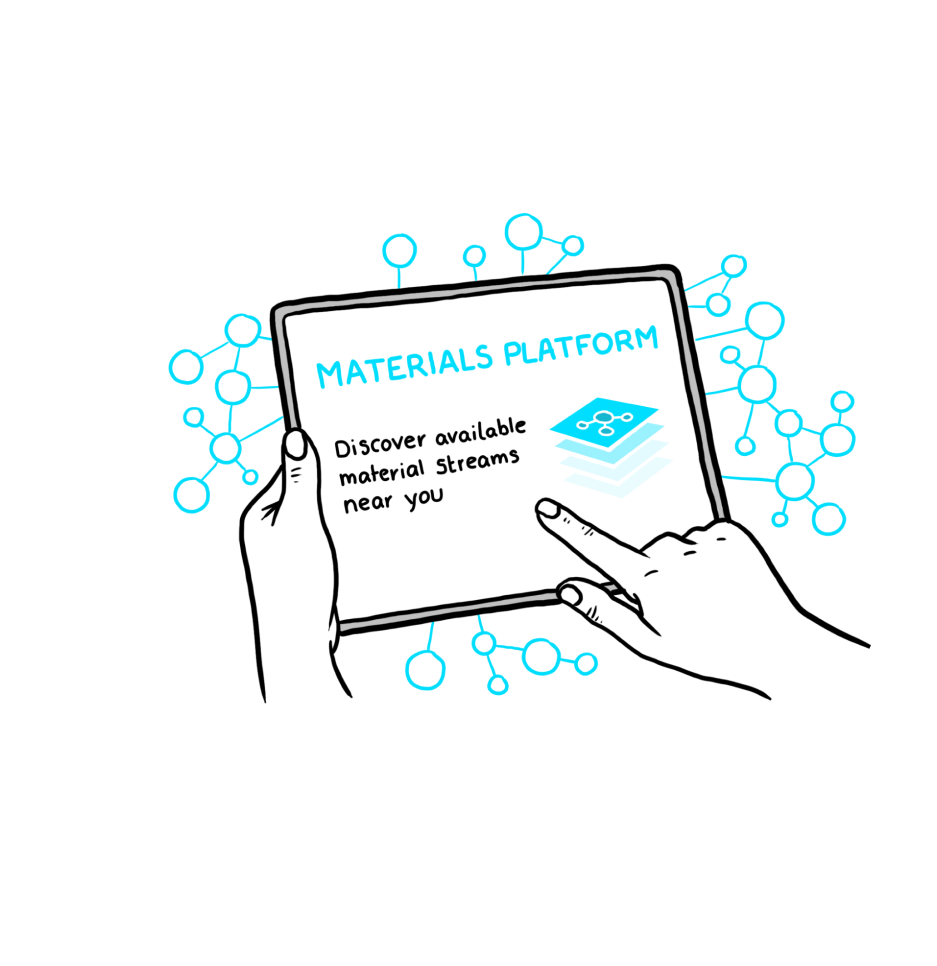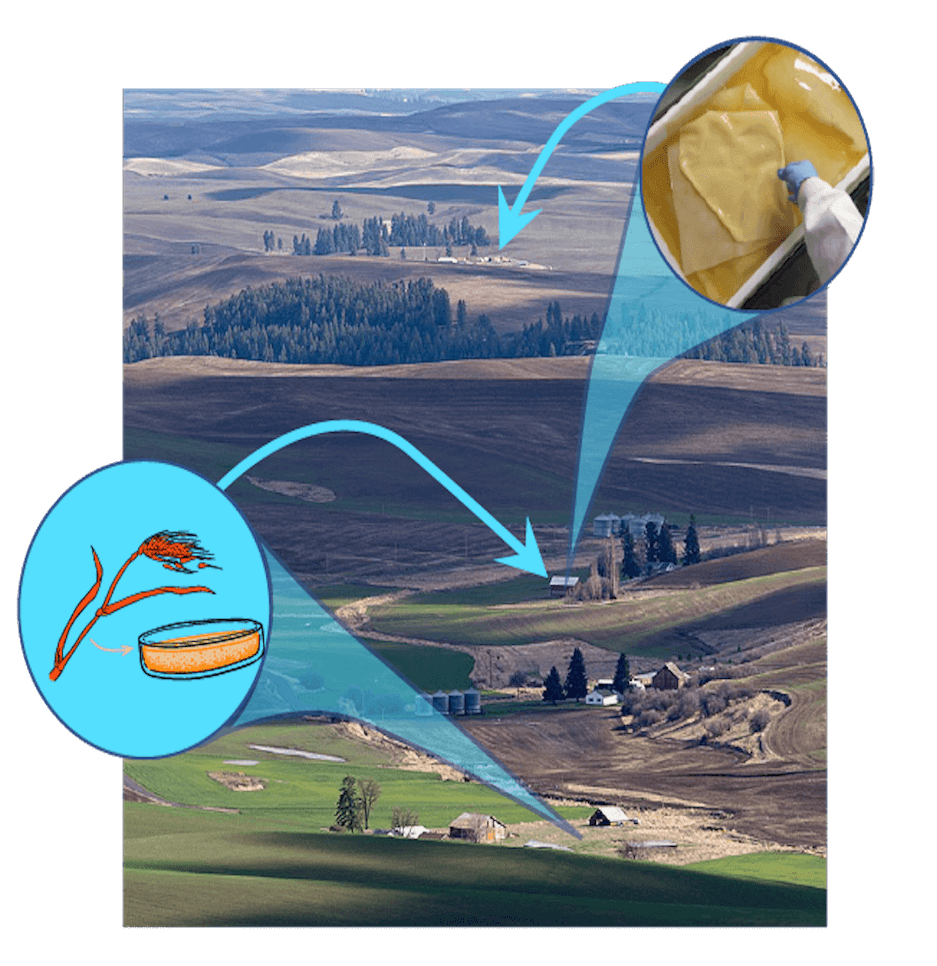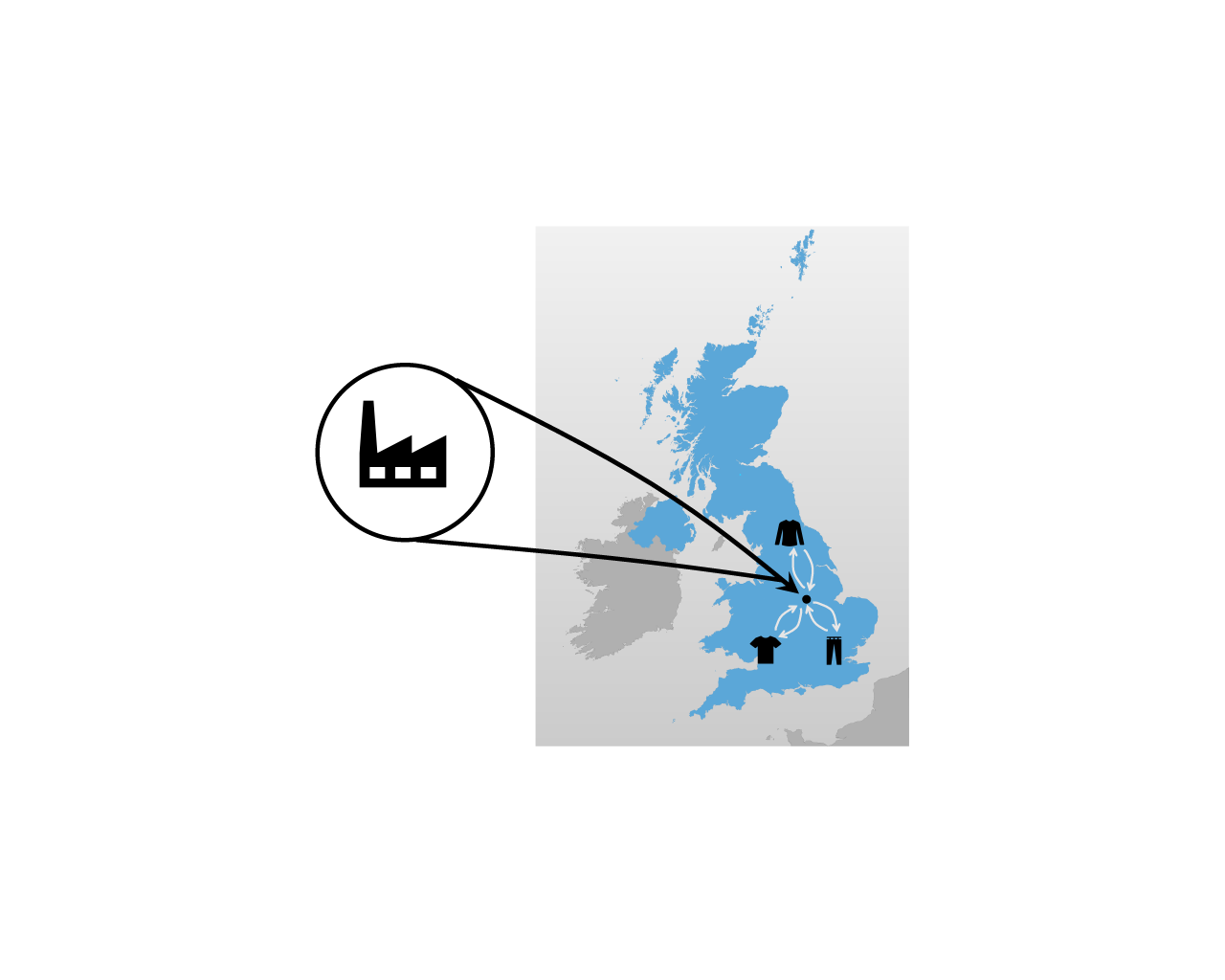About the Supply Chain Research Strand
The current state of the textile supply chain is optimised to be global, fast and linear. Forces in a changing world with innovations in novel biomaterial and new consumer experiences with textiles, means that supply chains must bend to become more narrow, slow and with circular closed-loop resource flows.

Our Team
The Circular Supply Chain research strand is led by Professor Steve Evans, from the Institute for Manufacturing at the University of Cambridge, a world specialist in sustainable manufacturing, and visiting professor at the Royal College of Art. Professor Gareth Loudon of the School of Design the Royal College of Art brings his expertise as Head of the Engineering and Global Innovation Program to the project as a Co-Investigator.

Overview
As the Circular Supply Chain strand we study which novel supply chain configurations and technologies are needed for bio-based textiles. The future textile supply chain needs three specific tools which we intend to build and pilot.
First there is the Digital Circular Supply Chain Transparency Tool. Circular Supply Chains in the future require an increase in transparency so that we can trust and share data between different actors in the supply chain.
New materials can often take decades to be used by designers at volume. The TCC is inventing new circular biomaterials as the beginning of a circular supply chain, which takes end-of-life clothing, household waste and farm waste and turns them into molecules and fibres to produce new textiles. One of these things that we are worried about is whether designers will actually pick up those new materials and use them. Thus, we propose a second tool, which is the Biomaterials Platform, which helps designers access these new and exciting materials.
With those two tools, we still might not have a working supply chain. So the third tool, the Circular Supply Chain Design Tool is to assist organisations in building and maintaining a healthy circular supply chain. To do this we are studying circular business models through the lens of value flows, and circular supply chain configurations through the lens of materials flows.

Research Challenges
A circular textile supply chain brings in more local actors, who will operate under new contractual arrangements, where converting organic by-products and waste feedstocks to new materials is not straightforward and brings variation to the quality, quantity, transportation cost and timing of availability of feedstock. Most modern supply chains do not have to deal with this variability as supplies are to known standards, delivered by optimised logistics and are generally always available. Circular supply chains must solve this puzzle. In addition, the TCC seeks to support local manufacturing, encourage a dynamic set of SMEs and bring novel interactions with end consumers.

Objectives
Our research objectives:
Propose new configurations for a transparent and circular supply chain for biomaterials and bio-based material textiles for apparel, that connects multiple stakeholders from organic by-products and waste to SME apparel/design brands and their consumers.
Discover and audit new technologies that improve the complete life and after-life supply chain transparency and zero-waste targets across the circular bio-based supply chain.
Design and develop a biomaterials and bio-based materials platform that integrates data collected along a transparent circular supply chain that is useful for numerous SME apparel brands.